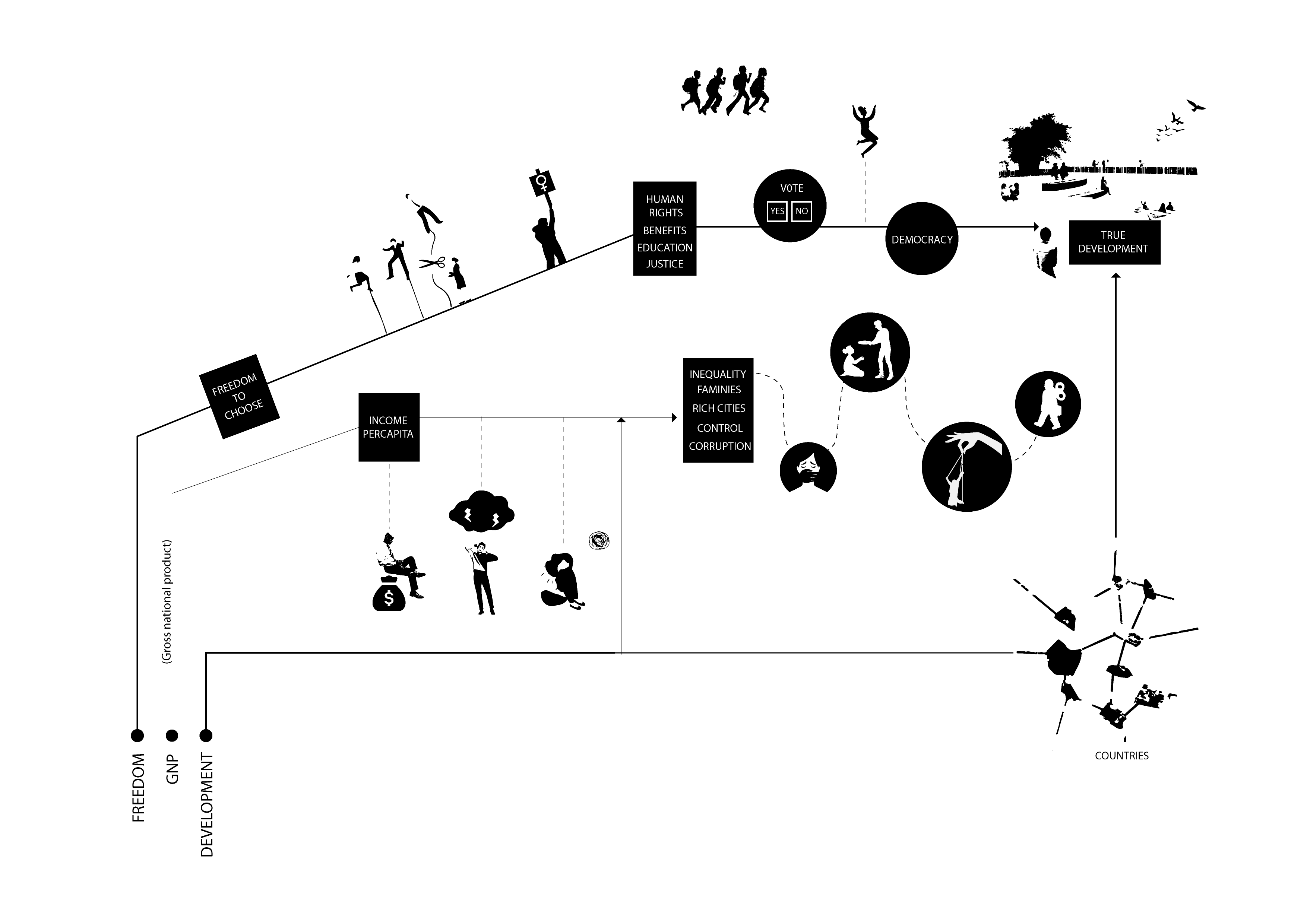
Development as Freedom is a book written by Nobel prize winner and philosopher Amartya Sen, which argues that development should be measured in terms of people’s freedom to choose the lives they value.
Some of the main concepts addressed by Sen in the book are:
- The goal of development should not simply be to increase Gross Domestic Product (GDP) but rather to enable people to improve their lives with more opportunities and choices.
- Freedom and development are intrinsically linked, and development policies should be designed to expand human capabilities and enhance people’s ability to lead fulfilling lives.
- Economic growth is not sufficient for development, as it does not necessarily translate into greater freedoms for individuals.
- Freedom is a necessary precondition for development, which must be seen as a process for expanding human capabilities rather than simply increasing economic output.
Sen also explores various aspects of freedom, such as:
- Poverty: And its relationship with freedom, arguing that poverty is not restricted to a lack of income or resources but also a lack of freedom because it limits people’s ability to make choices and pursue the lives they want. Thus, poverty reduction should not just be about increasing income but also about expanding people’s freedoms.
- The importance of institutions: Political institutions, legal systems, and social norms are essential for promoting development and creating environments that foster economic growth and expand human capabilities.
- The importance of education and healthcare for promoting human capabilities and expanding people’s freedoms, seeing how access to these services is necessary for people to live fulfilling lives and fully participate in society.
- The role of democracy and political freedom as a way to have people participate in decision-making and hold their governments accountable. He contends that democracy is not only an end but also a means to achieving other development goals.
- A critique of traditional economic theory: Arguing that the typical approach to economics, which focuses on maximizing economic growth while assuming people are rational and self-interested, is very narrow-minded and that a broader strategy that emphasizes human capabilities and freedom is needed to promote sustainable development.
Overall, Development as Freedom is a book that challenges conventional thinking about development, offering a new framework for thinking about development that emphasizes human capabilities and freedom.

